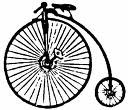I love clothes shopping, and find it easy to spend money on clothes. I am making a conscious effort to do so less, partly to save money, and partly to reduce waste; it is so easy to find oneself accumulating excess possessions, and does not feel particularly healthy or environmentally friendly to do so. I find planning ahead a bit does help, and this is a topic which I will address in future posts.
When I receive mail-order clothes catalogues in the post, I have adopted the habit of quickly skimming through them, and tearing out pages showing any looks I like, and putting them in a clippings file. When I have time, and feel inclined to do so, I review the torn-out pages, analyse what about the pictures appeals to me, whether the outfit is one that would suit my shape and colouring, and then try and work out how to create a simliar effect with my existing wardrobe. I generally find that I have most of the components for a similar ensemble already, or I may decide that the addition of one or two small items would make a difference. In that case, I write a note in the notebook I carry with me, for future reference. For instant, this week I admired an outfit which was essentially a smart shirt, tank-top, and trousers - a combination I wear often - but with a patent belt added. Rummaging through my wardrobe, I found a patent belt belonging to another dress, which I decided would work well for this.
I do something similar with online sites, looking at garments that appeal to me as part of a combination, where the website allow this function. I then bookmark the page concerned for future reference. I have, though, recently unsubscribed from the all clothes-shopping e-mails that I used to receive, so that I now make a conscious effort to visit websites of interest, rather than finding myself drawn into them unintentionally.
Join Us for Move 26 in ’26
1 month ago




